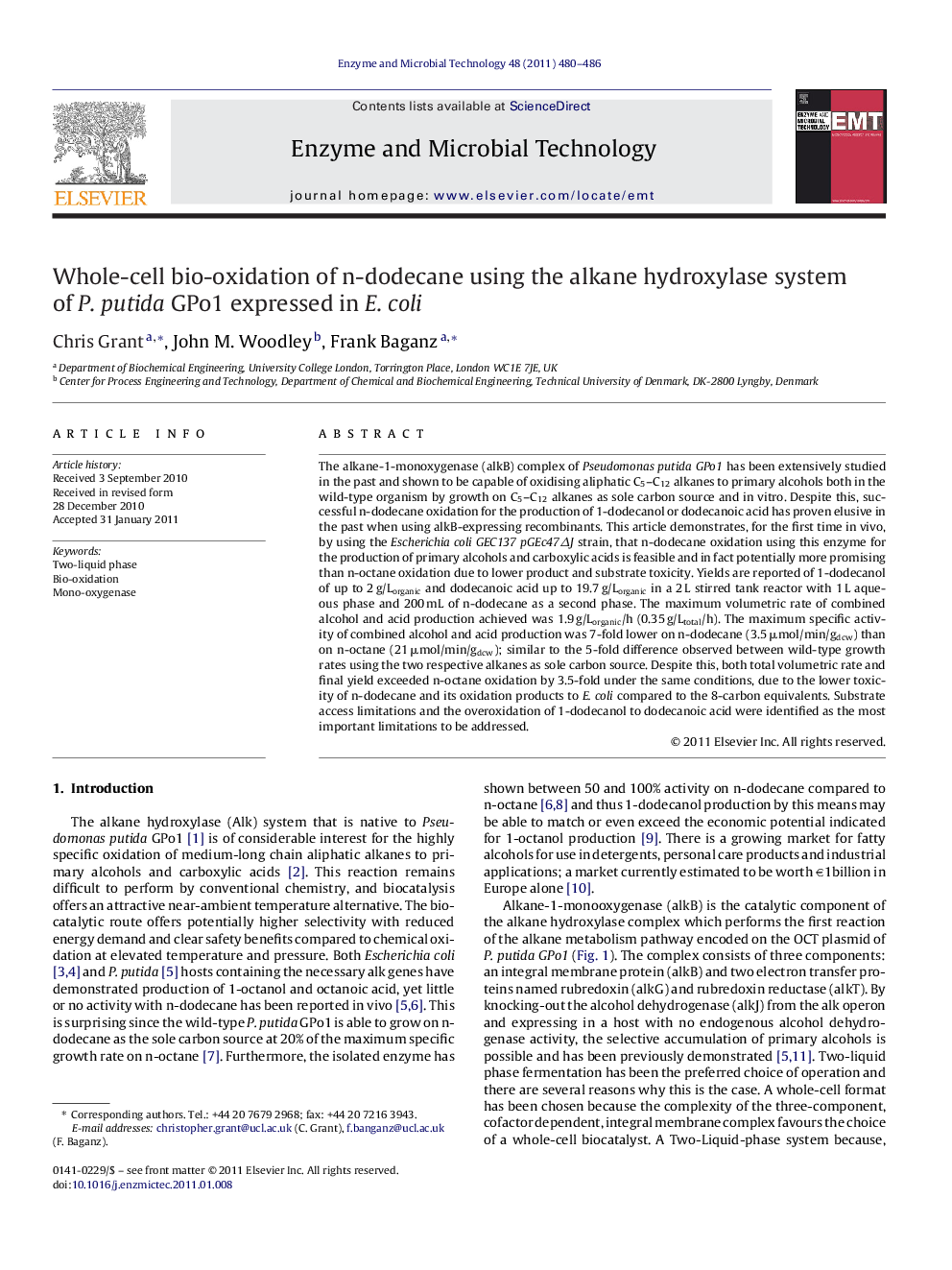| کد مقاله | کد نشریه | سال انتشار | مقاله انگلیسی | نسخه تمام متن |
|---|---|---|---|---|
| 17459 | 42670 | 2011 | 7 صفحه PDF | دانلود رایگان |

The alkane-1-monoxygenase (alkB) complex of Pseudomonas putida GPo1 has been extensively studied in the past and shown to be capable of oxidising aliphatic C5–C12 alkanes to primary alcohols both in the wild-type organism by growth on C5–C12 alkanes as sole carbon source and in vitro. Despite this, successful n-dodecane oxidation for the production of 1-dodecanol or dodecanoic acid has proven elusive in the past when using alkB-expressing recombinants. This article demonstrates, for the first time in vivo, by using the Escherichia coli GEC137 pGEc47ΔJ strain, that n-dodecane oxidation using this enzyme for the production of primary alcohols and carboxylic acids is feasible and in fact potentially more promising than n-octane oxidation due to lower product and substrate toxicity. Yields are reported of 1-dodecanol of up to 2 g/Lorganic and dodecanoic acid up to 19.7 g/Lorganic in a 2 L stirred tank reactor with 1 L aqueous phase and 200 mL of n-dodecane as a second phase. The maximum volumetric rate of combined alcohol and acid production achieved was 1.9 g/Lorganic/h (0.35 g/Ltotal/h). The maximum specific activity of combined alcohol and acid production was 7-fold lower on n-dodecane (3.5 μmol/min/gdcw) than on n-octane (21 μmol/min/gdcw); similar to the 5-fold difference observed between wild-type growth rates using the two respective alkanes as sole carbon source. Despite this, both total volumetric rate and final yield exceeded n-octane oxidation by 3.5-fold under the same conditions, due to the lower toxicity of n-dodecane and its oxidation products to E. coli compared to the 8-carbon equivalents. Substrate access limitations and the overoxidation of 1-dodecanol to dodecanoic acid were identified as the most important limitations to be addressed.
Journal: Enzyme and Microbial Technology - Volume 48, Issues 6–7, 6 May 2011, Pages 480–486